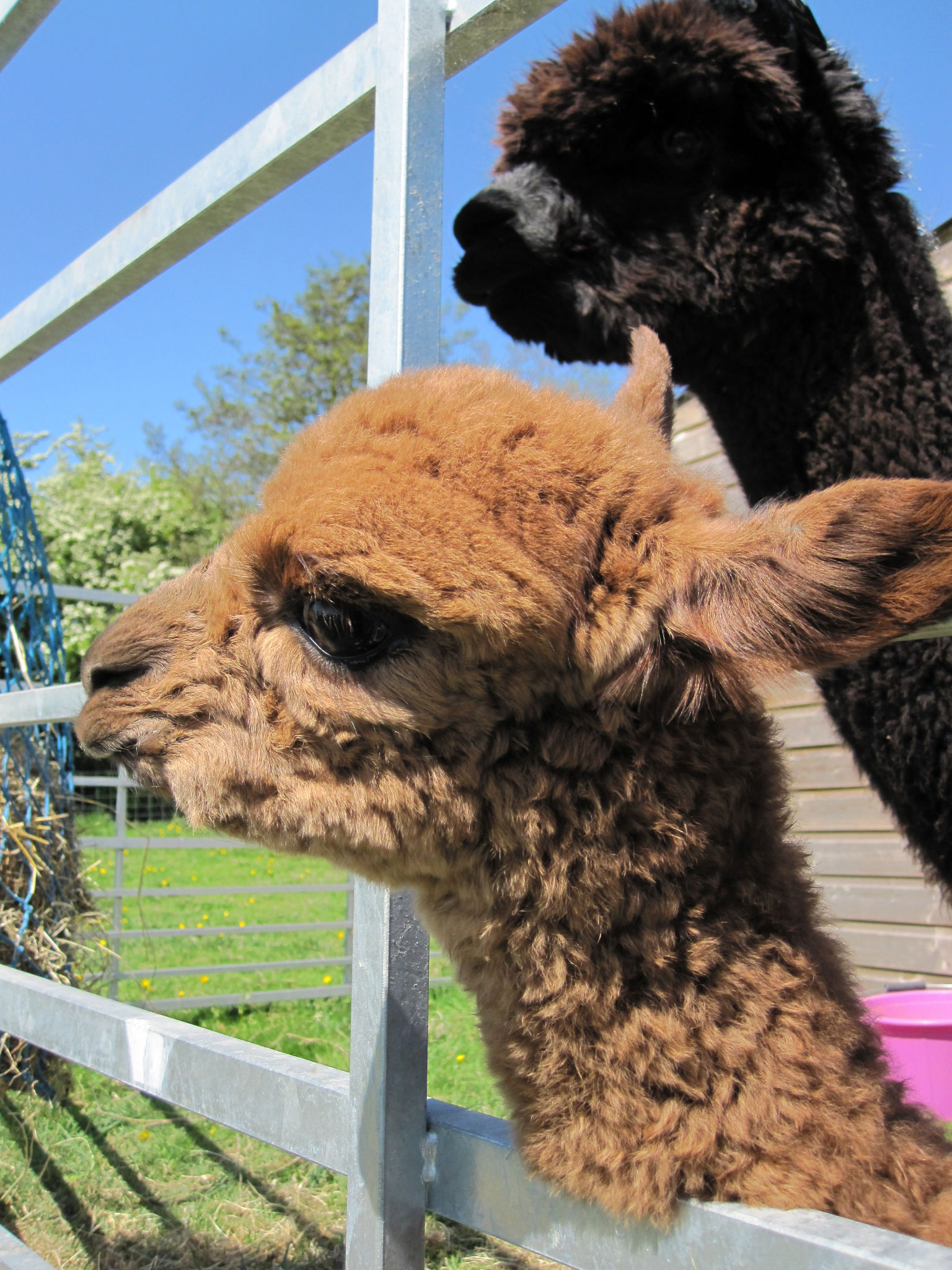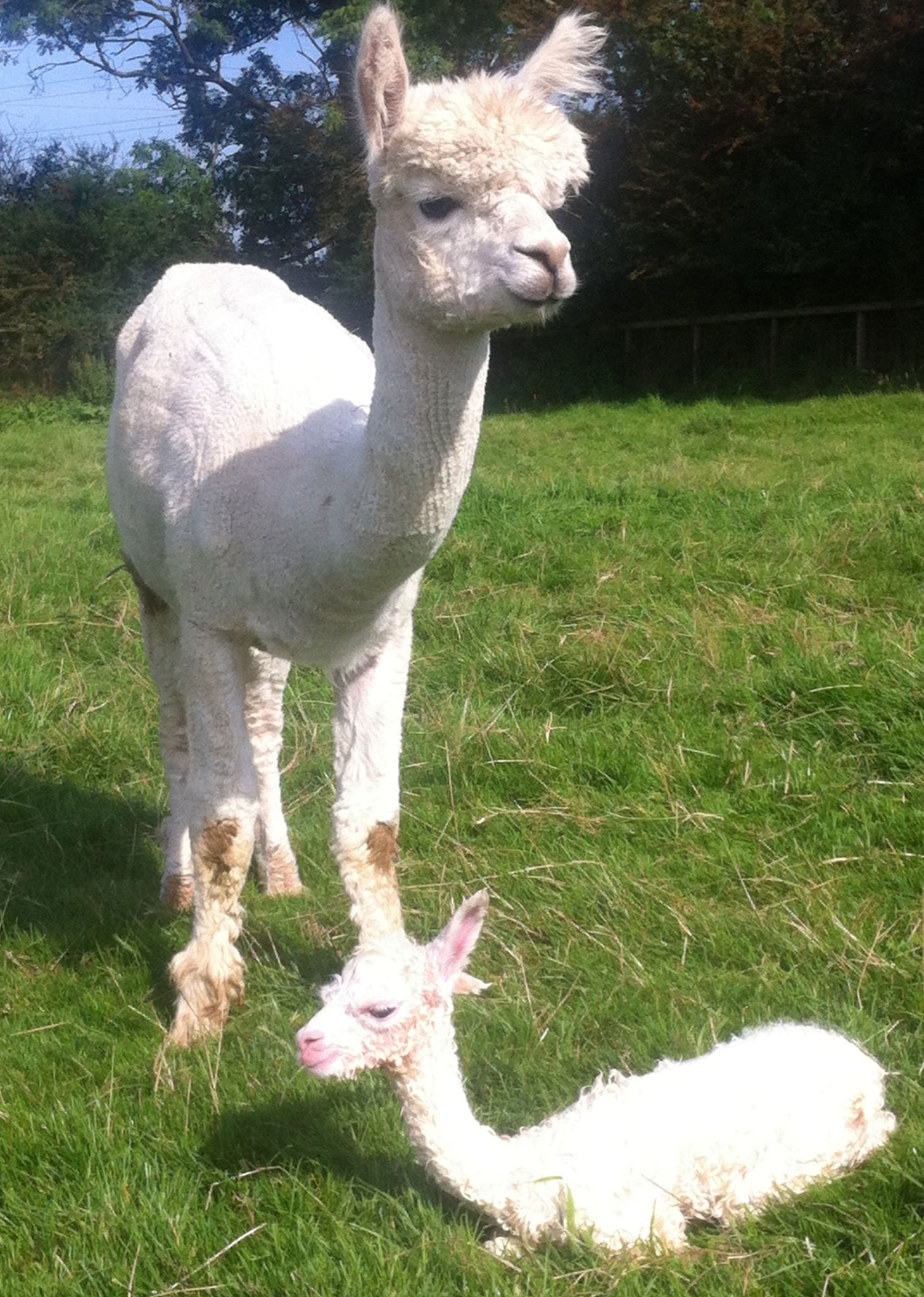Why Keep Alpacas?
Alpacas are charming and inquisitive animals and very rewarding to keep as they are all individuals with different quirky personalities. They are gentle and intelligent animals who are quite easy to halter train and rarely kick or spit unless extremely provoked.
Unlike other livestock they are ideal for farming small acreages and not all alpacas cost thousands of pounds. Non breeding males make excellent pets and 'grass cutters' and neutered males will guard other stock from predators such as foxes. See our Alpaca Sales page for non breeding, pet males. No farming experience is needed and alpacas are not slaughtered for their meat.
As well as being very fun to keep and providing endless enjoyment, breeding alpacas can provide a long term investment opportunity in a growing industry to produce luxury fibre which provides an end product and long term viability. The alpaca industry is at an early stage of growth in the UK, with only an estimated 20,000 animals in the country at this time. There is enormous potential to improve the quality of the fibre, and increase the numbers of the national herd, adding to the sustainability of the industry. The standard of UK alpacas is improving every year and there are opportunities for people with anything from 1 acre to 1000 acres, from pets to a hobby or to a serious breeding enterprise. Each breeder can make their mark and choose their own breeding goals. Suri alpacas and top quality coloured animals are still rare and can provide a niche market.
In short these animals are gentle, easy to keep and can provide a very comfortable lifestyle.
Are alpacas suited to the UK?
Alpacas are generally very comfortable in this country. In Peru they are used to temperatures which range from 20 degrees in the daytime then plunge to minus 10 at night. Their exceptional fleece has hollow fibres which provide excellent insulation keeping them cool in summer and warm in winter.
What is the environmental impact of alpaca farming?
Breeding alpacas is especially attractive to smallholders on small acreages of grazing land. They have virtually no environmental impact on their pasture as they have a split upper lip with a bottom row of teeth and an upper dental gum which prevent them from damaging vegetation roots. As the alpaca has pads on its feet rather than hooves there is also far less poaching and damage to the pasture surface which allows faster re-growth. In addition alpacas do not require intensive farming or processes such as dipping, dagging or frequent worming.
Alpacas and alpaca farming in the UK: Is there a sustainable market for UK bred alpacas and alpaca products?
There is little danger of oversupply of good quality alpacas as they are slow to reproduce, about one cria (baby) per year during a reproductive life of 15-20 years. Importing alpaca from Peru, Chile and Australia is expensive and complicated and the quality of the British herd continues to improve every year. Export opportunities are opening up in Europe and the UK is perfectly positioned to capitalise on this.
UK alpaca fibre production is still quite small, with UK breeders owning around 25,000 animals producing around 10 tonnes of fibre a year, however alpaca is already the largest indigenously produced natural luxury fibre, having overtaken national production of cashmere and mohair by both volume and value in the last couple of years. See our Shop page for our range of hand knitted alpaca products.
Increasingly alpacas are being acknowledged as a viable alternative rural enterprise for both farmers looking to diversify and attracting newcomers to agriculture. In fact one of the most exciting aspects of alpacas is that people with little or no farming experience can, with commitment and hard work, build a successful and ethical business.


